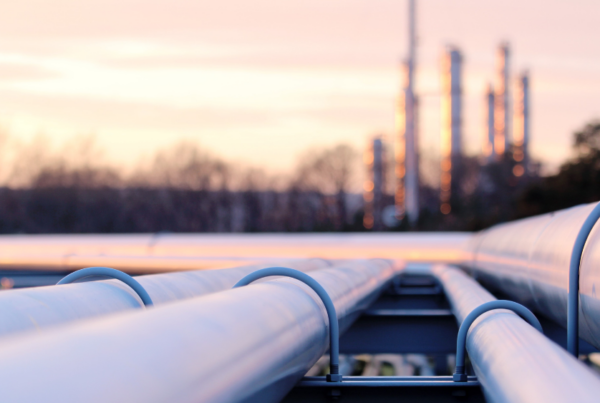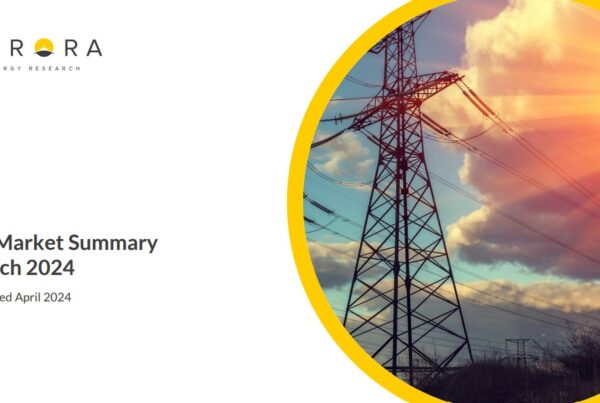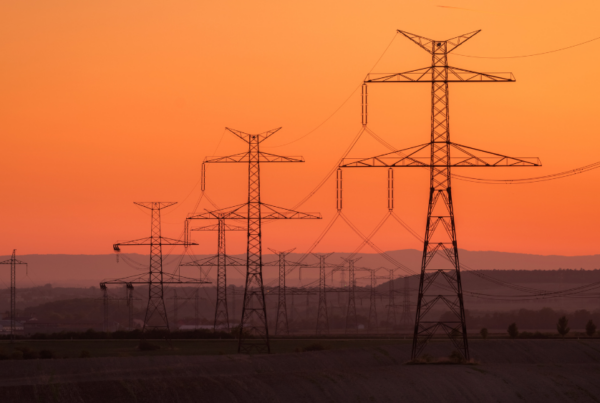
Electricity demand for home heating set to quadruple by 2050 as part of shift away from gas-fired boilers
- Phasing out natural gas boiler installations by 2035 is crucial for eliminating CO2 from home heating; delaying to 2040 could leave us with ¼ of today’s home heat emissions in 2050
- Achieving deployment of 600k heat pumps per year by 2028 will require policy intervention both to lower costs and to inform and protect consumers
- Almost £40bn could be saved in cumulative system costs by 2050 through adoption of more efficient and flexible electric heating technologies, like networked heat pumps and storage
- Electricity demand from heating could quadruple by 2050 to over 100TWh per year, almost a third of Great Britain’s current total annual electricity demand
- Using hydrogen for a share of heating could lower peak power demand, although producing most of this hydrogen from electrolysis would raise overall power demand
Aurora Energy Research, the leading energy market analysis firm, today published the most comprehensive study to date of heat decarbonisation in Great Britain, coinciding with the release of the government’s new Heat and Buildings strategy.
The Heat and Buildings strategy makes important first steps on meeting the main challenges of decarbonising heating. The ambition for all new heating systems to be low carbon from 2035 is essential to meeting the net zero target in 2050. Grants of £5,000 to help install low-carbon heating systems could make heat pumps economically attractive for a majority of homes replacing their heating systems within the next few years, and the £60m Heat Pump Ready innovation programme will support the vital process of bringing down costs of low-carbon systems in future.
There are several next steps that will be important beyond what is set out in the strategy: committing to the gas boiler phase-out, preparing for the possibility of slower-than-hoped cost declines, and addressing the high cost of electricity relative to gas.
Holding to the 2035 ambition for phasing out gas boiler installations is key: a delay to 2040 could leave us with 15MtCO2 emissions from heating in 2050, roughly equivalent to running a 2GW coal-fired power station 24h a day for the full year.
The government hopes that heat pump costs will fall between a quarter and a half by 2025: this is ambitious, and if costs do not fall this quickly then meeting the target of 600k heat pump installations by 2050 is likely to require an increase in funding for grants beyond the £450m set aside so far. Action will also be needed to lower non-cost barriers, so that consumers are not put off by unfamiliarity, complexity and lack of information.
Despite the high efficiency of heat pumps, they are currently more expensive to run than gas boilers because the structure of retail energy bills makes prices per MWh about four times as high for electricity as for gas. Decisions in 2022 on shifting government levies away from electricity will be important, and will need to consider the impacts on low-income households. The pace of decarbonisation of the power sector is also important: accelerating this onto a pathway consistent with net zero in 2050 could reduce wholesale electricity prices in 2030 by 15% compared with Aurora’s expectation under current policies.
Successful deployment of electric heating across the country could quadruple electricity demand for heating to about 100TWh by 2050, roughly a third of today’s total electricity demand. Even in the context of an economy rapidly electrifying to reduce emissions, heating could account for over a quarter of the increase in demand by 2050. The cost of meeting this demand depends on the combination of technologies used: for example, widespread uptake of networked ground-source heat pumps, which can run more efficiently than air-source heat pumps, could lower cumulative system costs by almost £40bn between now and 2050.
Ben Collie, Principal at Aurora Energy Research commented:
“The heat and buildings strategy sets out important next steps for the decarbonisation of heat. Gas boilers in homes today account for more carbon emissions than the whole of the power sector, so scaling up deployment of heat pumps in the next decade is essential to reaching net zero in 2050. We expect electrification of heating and the potential future introduction of hydrogen heating to have a major impact on the energy system, and planning to accommodate this through new generation, network development and long-duration storage will be essential.”
– ENDS-
Contacts
Media lead: Caroline Oates
E: caroline.oates@auroraer.com
M: +44 (0)7912 568570
Study lead: Ben Collie
E: benjamin.collie@auroraer.com
M: +44 (0)7741909084
About Aurora
Aurora Energy Research is a leading European independent energy market modelling and analytics company founded in 2013 by University of Oxford Professors and economists. Aurora provides deep insights into European and global energy markets supported by cutting edge models and data driven analytics to support project development and investment decisions. Aurora Energy Research has offices in Oxford, Berlin, Sydney and Austin.
Aurora developed this study with a consortium of investors, industry leaders and policy makers to study the costs and system implications of heat decarbonisation pathways that could arise from different assumptions about policy and technology. Aurora’s study was based on original research integrating their power and hydrogen system models.






